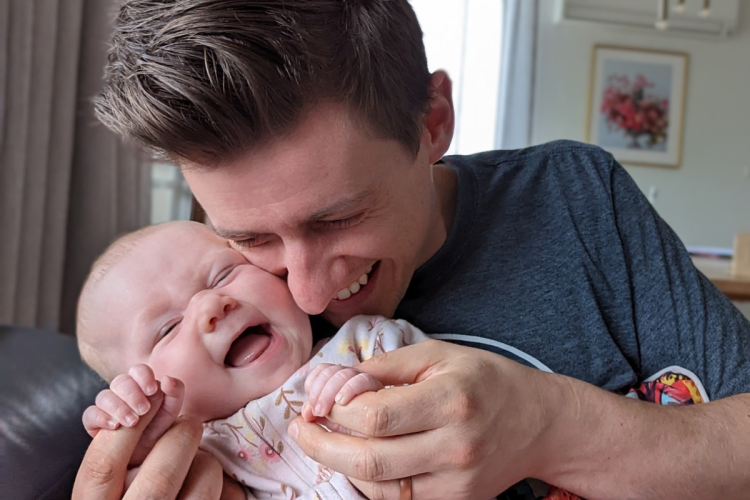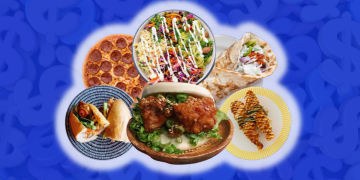At 29, Sam Hakendorf was healthy, active and had no obvious symptoms of bowel cancer. But one small clue changed everything.
Sam Hakendorf had no reason to worry about his health.
At 29, he hiked with his dog every morning, cycled to work, got to the gym regularly, volunteered with his local CFS and didn’t drink.
In fact, he didn’t tick a single box on the list of risk factors for bowel cancer – which is now the number one cancer killer in young South Australians aged 15-44.
But one day, he noticed a small amount of blood in his stool.
“It was bright red and could easily have been mistaken for capsicum or tomato,” Sam, speaking to The Post during Bowel Cancer Awareness Month this June, says.
“I didn’t have any other symptoms. My bowels were working like clockwork, and I was very lucky I noticed it to be honest.”
A quick Google search told him bowel cancer bleeding was often darker and, without other symptoms, he might have dismissed it. But just a year earlier, a friend had been diagnosed with bowel cancer, and her story was still fresh in his mind.
“I could have easily ignored it, and it could have progressed and been far worse. But because of the advocacy work she was doing, it triggered something in my mind to think I should get checked out.”
That decision may have saved his life.
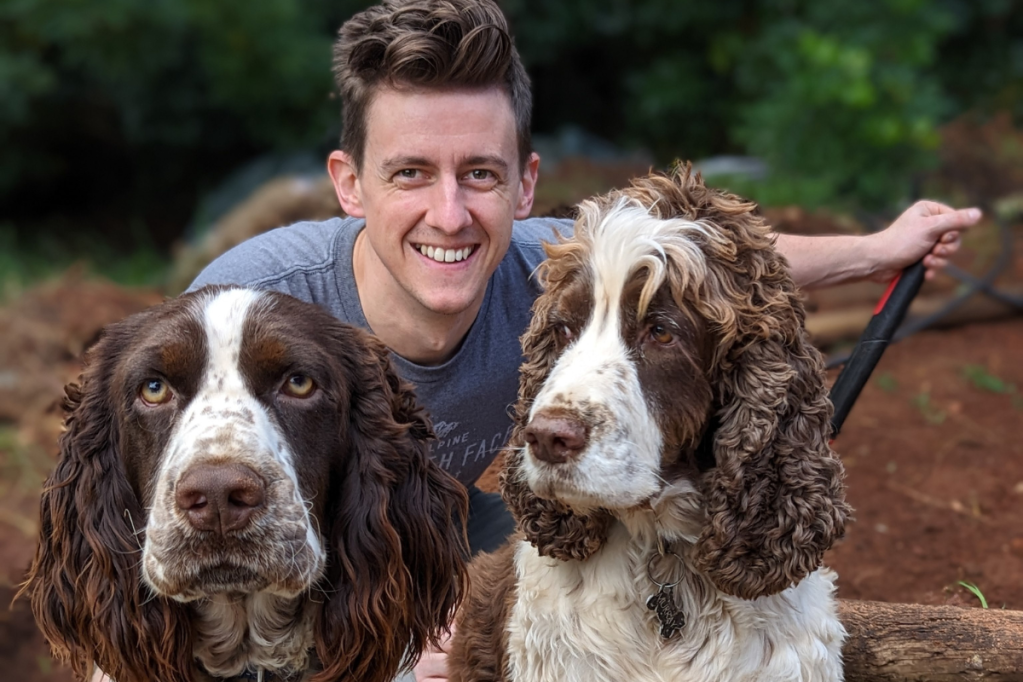
‘This could be it’
Sam’s initial bowel cancer screening test came back negative, but it did confirm the blood in his stool. Luckily his GP didn’t stop there and referred him to a colorectal surgeon for a colonoscopy.
It was April 2020, the peak of COVID restrictions in SA, and Sam admits he secretly hoped the procedure would get cancelled.
“At the time I thought, oh God, this is going to be such a headache. I’m going to have to stop eating for a whole day, I’m going to have to drink that gross drink … but now I know it’s nowhere near as scary or as bad as you think.”
“It’s absolutely worth doing, and it shouldn’t be the thing that stops you from getting something checked out.”
Waking up from the colonoscopy, Sam remembers feeling pretty happy – “probably thanks to the drugs”.
He was smiling at a couple who’d just had a baby when the surgeon walked up to his bed.
“He said ‘Sam, mate, while we were doing your procedure we found bowel cancer’.
“You know when your face feels hot all of a sudden and you just have this ‘oh shit’ moment that really stops you in your tracks?
“I was just thinking, this could be it. And that’s so daunting, especially as someone in their 20s.
“Your mind is firing at a million miles an hour and you’re really trying to focus on one thing, but you can’t.”
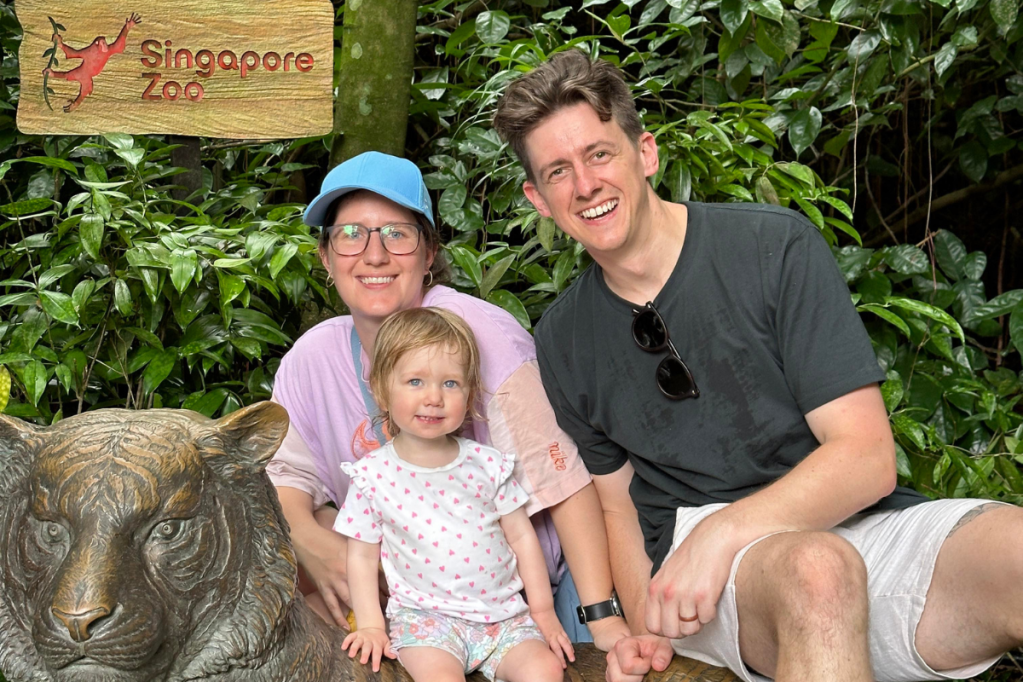
Scans, surgery and more bad news
Sam’s wife, Bonnie, was asked to come to the hospital, before he was whisked away for blood tests and a CT scan to see if the cancer had spread.
“After the CT scan I was given some cold and stale scones, and it was then clear to me that my day was going downhill very quickly.
“The first week of being diagnosed is the absolute worst because you don’t know how bad things are, and you don’t know what the plan is.”
The scan showed the cancer had not yet spread to other parts of his body, and Sam was then booked in for a 5-hour Lower Anterior Resection surgery to remove the tumour the following week.
“If I hadn’t been completely cleaned out by the laxative drink the evening before, I would have been packing my dacks in a literal sense.”
Post-op Sam was given more bad news. The cancer had spread to his lymph nodes and was therefore classified as Stage 3. He would have to undergo chemotherapy.
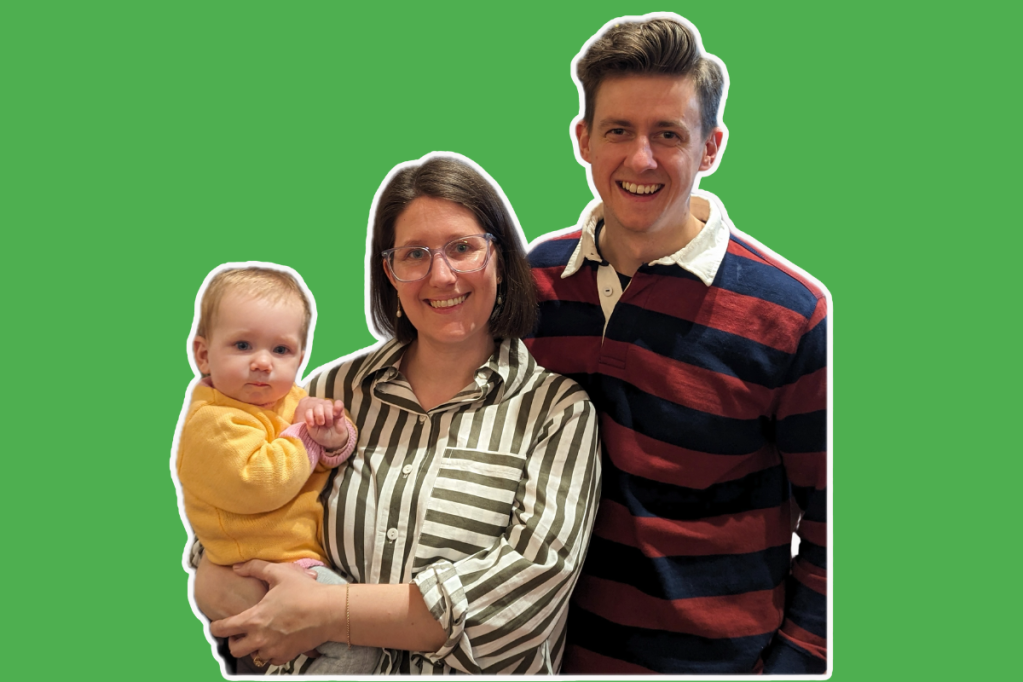
‘Sad Sundays, Cry in the Shower Wednesdays’
Sam’s chemo journey started in June 2020. Over six months, he went through 12 rounds every fortnight, dealing with a myriad of side effects from a metallic taste in his mouth, to “chemo brain” and extreme sensitivity to the cold.
“If I got at all cold during the day, my hands would start to have the most severe pins and needles, to the point where I couldn’t touch them, or even put anything on them to warm them up.
“Breathing in cold air, it would feel like my throat was closing up … so I had to be careful when I tried to do any exercise or even just go for a walk.”
As the weeks ticked by, Sam started to find a rhythm with his treatment – he’d feel rotten one week, then OK the next.
“I could anticipate when I would expect to feel certain side effects which in turn created some chemo weekly highlights including Sad Sundays, Deep Fried Fridays and Cry in the Shower Wednesdays.
“Another big thing I learned was, don’t treat yourself to your favourite food on the day of chemo ‘cos it will then always have this association thing. Save it for later in the week, when you feel a bit better.”
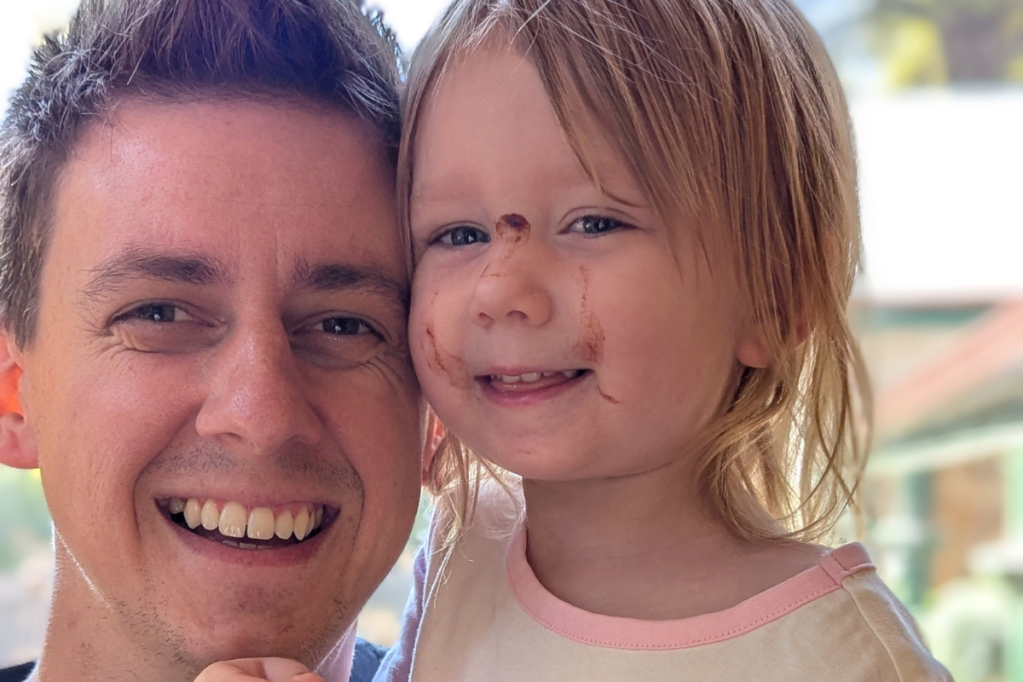
Getting the all clear
In November 2020, Sam finished treatment and a scan showed no signs of cancer.
But he wasn’t suddenly “back to normal”. Post-chemo recovery is ongoing – physically and mentally – and the fear of recurrence lingers.
“When you finish chemo and get the all clear, it really feels like the guardrails are down,” he explains.
“It’s daunting because you can’t help but think that you could go back in eight weeks for a checkup and the cancer could be back.
“I remember soon after I finished treatment I was going to buy a jumper. And I remember thinking, is it worth it? Will I actually get the use out of this jumper? Will I still be alive in six months’ time?
“When my wife and I were going to look at a bigger house, it terrified me. I was worried that something might happen, that I wouldn’t be able to work, wouldn’t be able to afford the mortgage.”
Time is helping with these fears, along with support from a psychologist.
“He (the psychologist) said: ‘Cancer has taken so much from you. Don’t let it take the joy away going forward too’. That really helped me to turn things around, and not let it dictate how I’m going to live my life now.”
A major turning point happened almost three years ago, when Sam and Bonnie welcomed a daughter, Eugenie.
“It was a big leap, but it was one of the things I’d always wanted in my life, to be a father, and I didn’t want to let cancer stop me from doing that.”
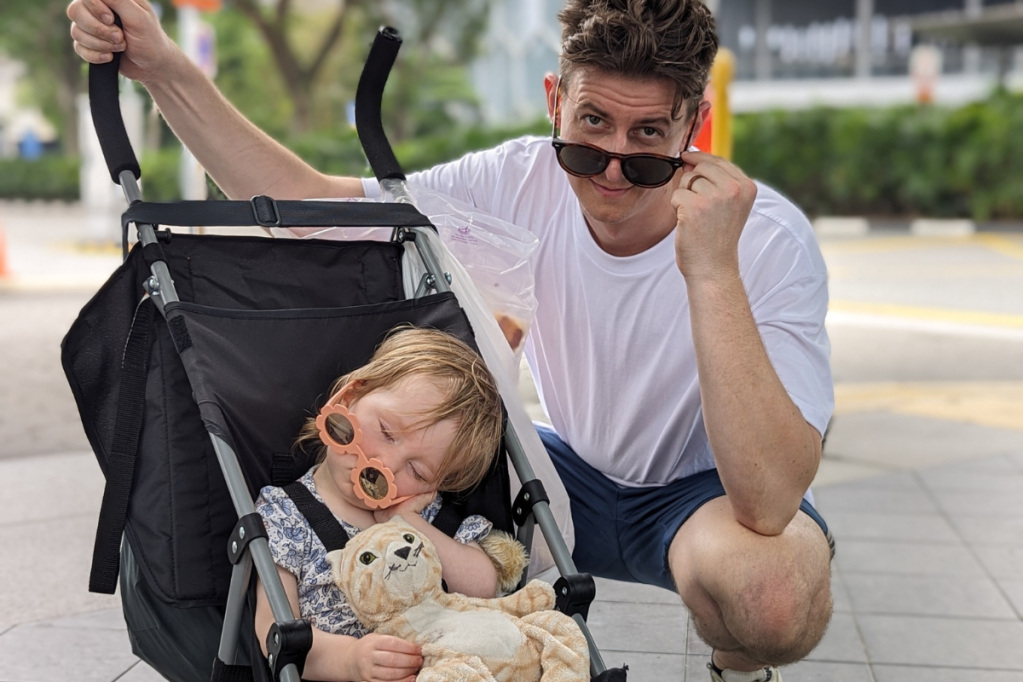
So what should I watch out for?
Sam wants to use his story to make sure others don’t miss the warning signs.
“Everyone knows the breast cancer symptoms, or to check the moles on your back for skin cancer. But bowel cancer isn’t really spoken about as much,” he says.
Preventive Health SA says you should look out for:
- Bleeding in your poo or on the toilet paper
- Persistent pain, bloating or cramping in the abdomen
- Persistent change in normal bowel habits such as diarrhoea, constipation or going to the toilet more often
- Unexplained weight loss
- Tiredness (a sign of anaemia) for no obvious reason
You can also check out the Jodi Lee Foundation’s free online symptom checker tool Trust Your Gut.
“Bowel cancer is the leading cancer-killer in Australians aged 25-44, but it’s also one of the most treatable when detected early,” Jodi Lee Foundation Founder and Chair Nick Lee says.
“We want young people to regularly look out for bowel cancer signs and symptoms, and to see their GP to rule out bowel cancer if they notice blood in their poo, toilet paper or in the toilet bowl, changes in their bowel habits, or unexplained tiredness or weight loss.”
Free screening could save your life
Are you aged 45 or older? You’re eligible for free bowel cancer screening through the National Bowel Cancer Screening Program – since July 2024, those aged 45 to 49 can opt-in to the program by calling the National Cancer Screening Rgister on 1800 627 701 or completing the web form here.
It’s a simple test you can do at home – and it could detect signs of cancer before symptoms even appear.
Don’t wait. The earlier bowel cancer is found, the better the chance of survival.
For more information on bowel cancer and screening options, take a look here.


